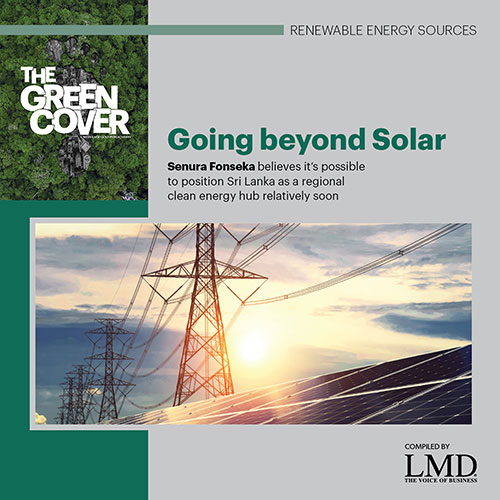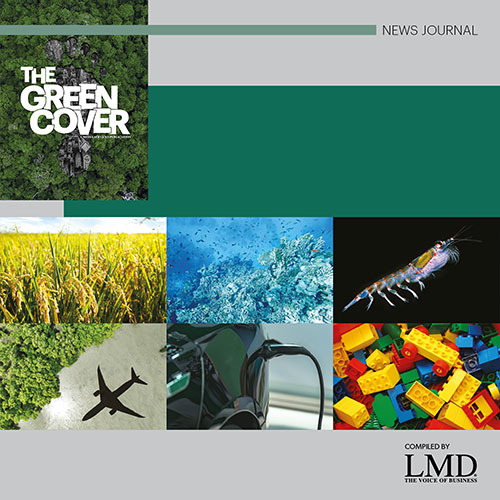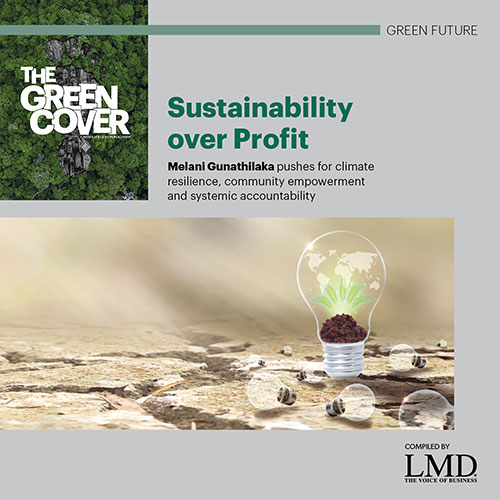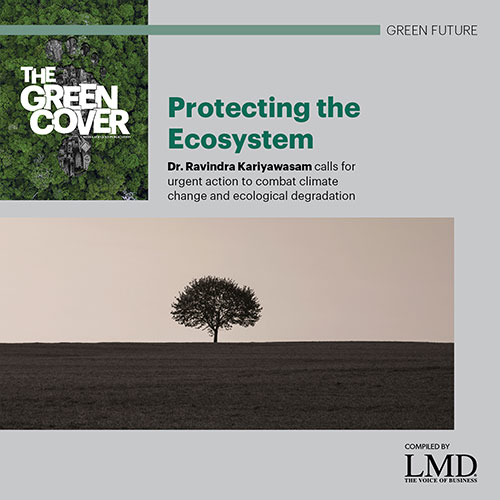PREFACE
A Clarion Call for Change
The climate crisis has never been more in evidence amid the ever escalating environmental challenges.
March saw the planet record its highest temperatures, marking the tenth consecutive month of increasingly hot weather. According to a report from the EU’s Copernicus Climate Change Service, this record-breaking heat is driven by a combination of human induced climate changes and El Niño’s complex weather patterns.
These unprecedented high temperatures were observed not only in the atmosphere but also ocean waters.
In the past year, the heat has propelled global average temperature rises to an unprecedented 1.58 degrees Celsius. This surge in temperatures has led to extreme weather events and exceptional heat worldwide, wreaking havoc throughout the year.
“The atmosphere is exposed to ever increasing concentrations of heat trapping greenhouse gases such as carbon dioxide and methane”
Climate change is more than merely increasing temperatures – it has many consequences ranging from natural disasters to the displacement of wildlife and gradual submersion of coastlines caused by rising sea levels.
As a result of human activity, the atmosphere is exposed to ever increasing concentrations of heat trapping greenhouse gases such as carbon dioxide and methane.
With the midpoint of the 2030 Agenda for Sustainable Development past us, it’s clear that the planet is far behind schedule in meeting its climate targets.
According to the WMO’s United in Science report, only 15 percent of the United Nations’ Sustainable Development Goals (SDGs) are advancing as intended.
The World Meteorological Organization report notes there is some advancement since signing the Paris Agreement in 2015.
Initially, greenhouse gas emissions in 2030 based on existing policies were expected to rise by 16 percent at the time of the agreement’s adoption. Today, the projected increase is three percent.
Saudi Arabia is hosting World Environment Day in 2024 with an emphasis on drought resistance, desertification and land restoration.
It’s ironic that in 2022, fossil fuels and industrial processes contributed to over 600 million metric tonnes of carbon dioxide emissions from that country. With the announcement that nations have pledged to restore a billion hectares of land – an area greater than China – the UNEP remains hopeful.
And as the United Nations Environmental Programme intimates, there has never been a more pressing need to act than now as humans are on the verge of causing irreparable environmental harm.
We can no longer afford to put off taking decisive action. A more robust and just future can only be achieved by switching to renewable energy sources, implementing sustainable land use policies and investing in green technologies.
However, meaningful change cannot occur without confronting the underlying systems of power and privilege, which perpetuate environmental exploitation and injustice. Climate change represents not only a scientific challenge but a moral imperative of our time.
The present context demands bold leadership, collective action and a fundamental reimagining of our relationship with the natural world. Failure to heed these warnings will condemn future generations to a world defined by ecological collapse, social upheaval and untold suffering.
The time to act is now, for the sake of our planet and all who call it home.
In the wise words of renowned British biologist Sir David Attenborough: “There is no question that climate change is happening; the only arguable point is what part humans are playing in it.”
– Tamara Rebeira







